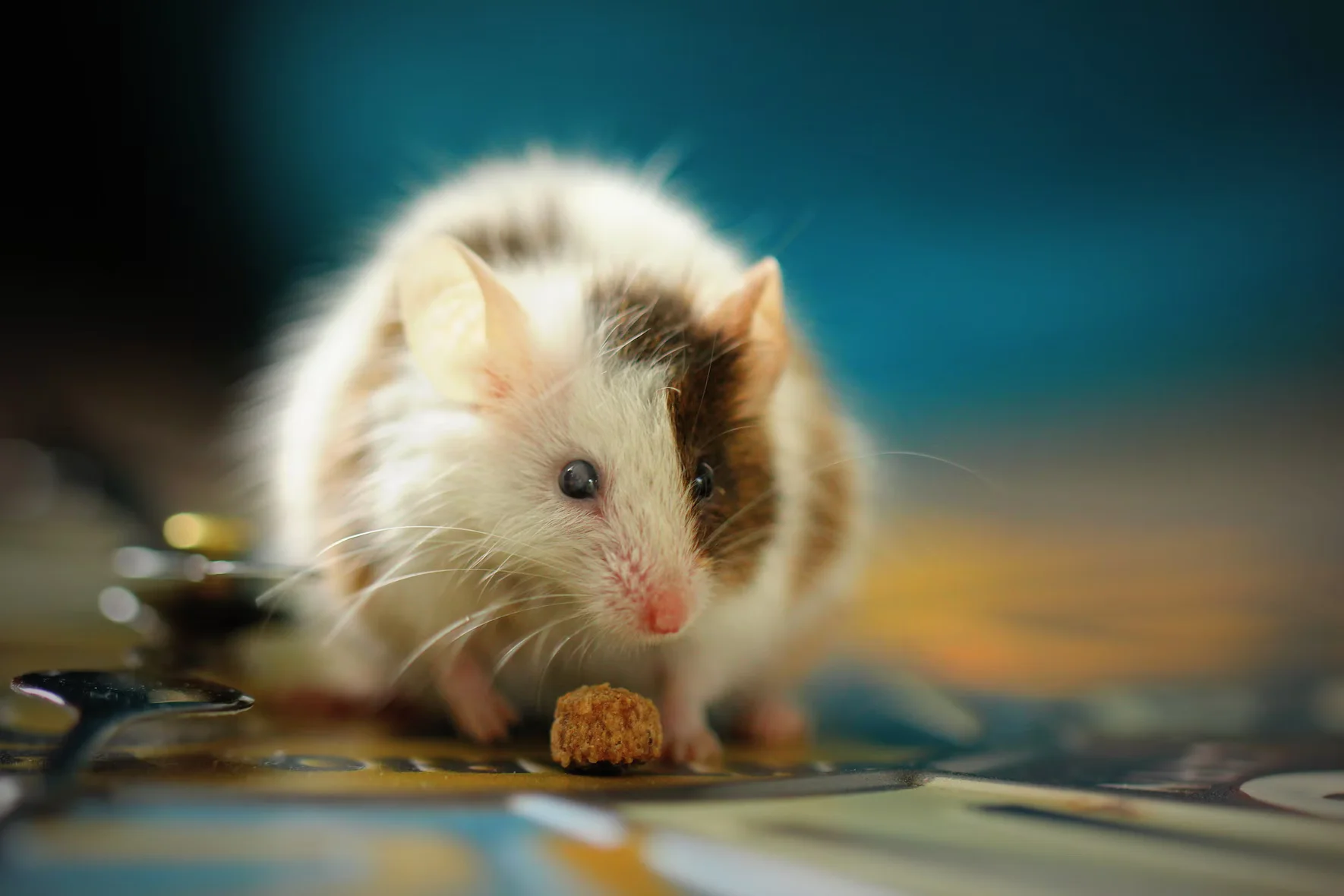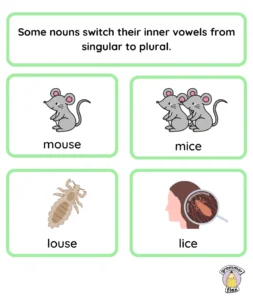
What’s the plural of “mouse”?
The old house was full of mice.
I need to buy two new computer mouses.
The field was overrun with wild mouses.
I plugged in the two computer mouse.
What’s the plural of mouse? Mouses? mices? mice? Make no mouse-take, and learn your correct English noun forms.
- The plural of mouse is mice, when referring to the rodent.
- To refer to a computer mouse, you can use mice or mouses. Both are correct to mention more than one computer mouse.
| Sentence examples | |
| singular | We play cat and mouse for about ten miles. |
| plural | The stores were overrun with rats and mice. |

Modern English is made up of other, oftentimes ancient languages (such as Greek, PIE languages, Latin, and others.) When words of varied origins come together, incongruences abound. This is why English has so many peculiar plural noun forms. The wee mice is an example of one such irregular plural noun form that was brought down from the Germanic languages to showcase a plural noun. The mouse/mice showcase the effect of the I-mutation/I-umlaut.
Origin of the word “mouse” (& the I-mutation)
Mouse comes from the Middle English word mus, meaning ‘small rodent.’ Mouse and mice have Proto-Indo-European roots, and its plural form, mice, in particular showcases what’s known as the i-mutation, also called the i-umlaut. The i-umlaut or i-mutation might be familiar for students of Germanic linguistics and languages, but it’s meaning is often misunderstood. We know that the majority of English plurals are formed by adding an -s or -es at the end:

Middle English plural nouns also took an -s or -es, but the -s/-es suffix was not the only noun form to show more than one of something. Another form can be seen with the I-mutation. Despite the technical sounding name, the I-mutation is fairly straightforward. Instead of adding the conventional -s or -es, the I-mutation changes the vowels of the noun to indicate its plural form.
Similar to mouse, the singular of a louse is in fact lice. Lice are almost always referred to as a plural, which checks out because when we refer to lice, it’s implied that there will be more than one. Mouse, however, are oftentimes found on their own, so its singular form is used often, in addition to mice.
Examples of “mouse” in sentences
We’ve got a mouse in the house
The owl swooped down on the mouse.
“There’s a mouse in my room! It just ran under my bed!”
Examples of “mice” in sentences
My cat likes to catch mice.
Characteristically, mice are known to have a pointed snout, small rounded ears, a body-length scaly tail, and a high breeding rate. (Wikipedia: mice).
Mice are typically distinguished from rats by their size.
Cats, wild dogs, foxes, birds of prey, snakes and even certain kinds of arthropods have been known to prey heavily upon mice.
When the cat’s away, the mice will play.
The plural of “mouse,” visualize a field overrun with “mice,” not “mouses.”.
Terms for male, female, and baby “mice”
- Female are doe, male mice are bucks.
- Baby mice are pinkys (because of their pink skin).
What do you call a group of “mice”?
Mice are “a nest”: “a nest of mice stood at the bottom of the staircase”. Mice in groups can also be a “mischief”, “group” or “horde“.
In review: plural of mouse
- Mouse is singular and refers to a single mouse.
- The plural of mouse is mice. The is the only plural of mouse.
- Mouse in groups are a nest, mischief, group or horde.
Read about other plural nouns
- What’s the plural of bison?
- What’s the plural of moose?
- What’s the plural of sheep?
- What’s the plural of ox?
- What’s the plural of cactus?
- What’s the plural of crisis?
- What’s the plural of hypothesis?
Work Sheet
According to the post, what is the correct plural of “mouse” when referring to the animal rodent?
Based on the post, what are the acceptable plural forms of “mouse” when referring to the computer device?
Which of the following example sentences from the post is marked as an INCORRECT usage of the plural for the animal “mouse”?
The post explains that the irregular plural form “mice” for the animal showcases the effect of which linguistic phenomenon?
Besides “mouse/mice”, which other singular/plural pair from the provided list demonstrates the I-mutation effect?
According to the post’s examples, the old house was full of ______.
When referring to the device, the post states you can use two new computer ______.
The post marks the sentence “The field was overrun with wild ______” as using an incorrect plural form for the animal.
Some nouns switch their inner vowels from singular to plural, like mouse and ______.
The origin of “mouse” and its plural “mice” is linked to Proto-Indo-European roots and the grammatical change known as the ______.
Frequently Asked Questions
What’s the plural of “mouse” (animal)?
+
What’s the plural of computer mouse?
+
Is the plural form “mouses” ever correct?
+
Why is the plural of mouse “mice”?
+
Can I use “mouse” when talking about two?
+
Yash, D. "What’s the Plural of Mouse?." Grammarflex, Jun 10, 2025, https://www.grammarflex.com/whats-the-plural-of-mouse/.
Sources
-
Collective noun for mice











